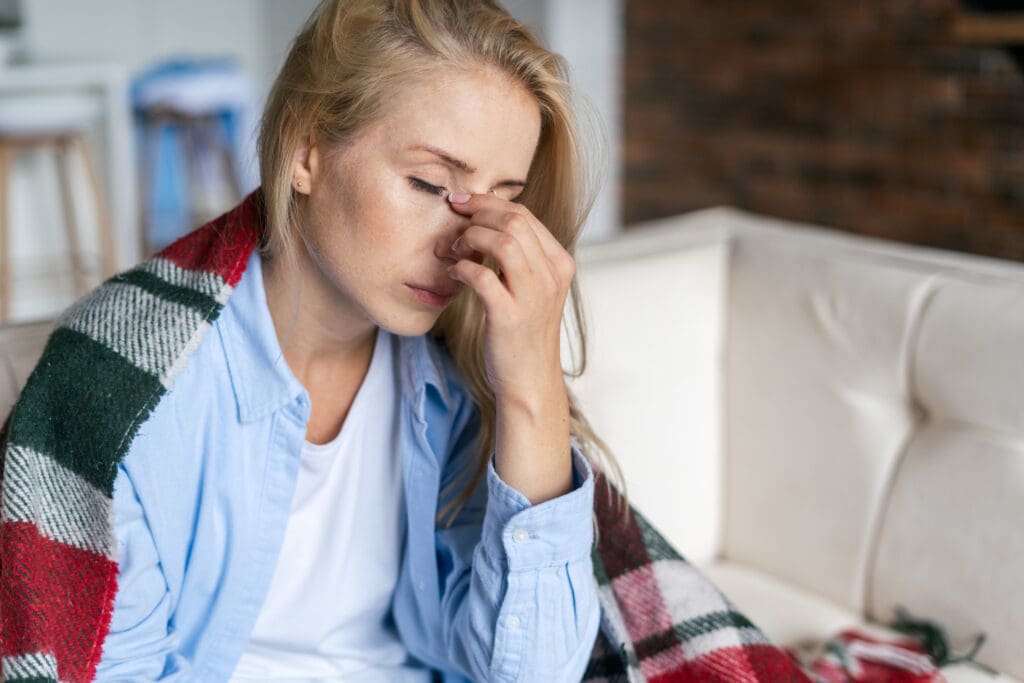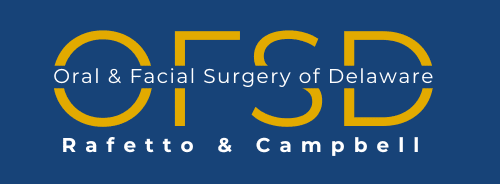Sleep apnea is a common sleep disorder that causes your breathing to stop and start while you sleep. Some patients with sleep apnea don’t realize they have it, but it can cause serious health issues without treatment. This condition can disrupt sleep, cause daily fatigue and moodiness, and other health problems.
If you think you might have sleep apnea, visit Dr. Conor Campbell for recommendations and treatment. Our dental services include oral appliance therapy for managing sleep apnea as an alternative to CPAP. Oral sleep appliances are an effective treatment option that can significantly improve your quality of sleep.

Treatments for Sleep Apnea in Wilmington, DE
Getting treatment for sleep apnea can help you feel more energetic and focused while keeping you healthier. Many patients choose our oral appliances because they’re a non-surgical option. These custom-fit devices work like a mouthguard to gently adjust your jaw and tongue, helping you breathe better while you sleep.
Unlike CPAP machines, oral appliances are more comfortable and easier to use. They’re small enough to take with you when you travel, so you can sleep well anywhere.
Types of Oral Appliances
Dentists offer two main types of oral appliances to help with sleep apnea. Your dentist can help you pick the right one after checking your sleep patterns. They might do a sleep test first to understand your needs, then recommend the best treatment. These mouthpieces usually work well for mild to moderate sleep apnea and snoring.
The two types are:
- Mandibular Advancement Devices (MADs): These gently push your lower jaw forward to help you breathe better.
- Tongue Retaining Devices (TRDs): These keep your tongue from blocking your airway while you sleep.
Lifestyle Changes to Support Treatment
Your sleep apnea mouthpiece will work even better if you make a few daily changes. Sleeping on your side instead of your back can help you breathe easier at night. Losing even a little weight can help improve sleep apnea for many people. That’s because extra weight is one of the biggest causes of breathing problems during sleep.
Cutting back on alcohol and sleep medicines helps too, since they relax your throat muscles too much. We’ll work with you to suggest other changes that fit your specific needs.
Common Signs of Sleep Apnea
Does your partner complain about your loud snoring? Don’t ignore it because it could be sleep apnea. Here’s what to watch for:
- Loud Snoring: Many patients with sleep apnea snore loudly, often interrupted by silence as they stop breathing.
- Choking or Gasping: Waking up many times a night to breathe or gasp for air.
- Excessive Daytime Sleepiness: Feeling tired during the day even after a full night’s sleep.
- Morning Headaches: Waking up with headaches is another potential symptom of sleep apnea.
- Difficulty Concentrating: Sleep apnea can affect your ability to focus.
- Irritability: Feeling more moody or irritable than usual.
These aren’t just annoying habits. They’re warning signs your body needs help breathing properly at night. If this sounds familiar, it’s worth scheduling a dental exam to get a professional opinion.
Risk Factors for Sleep Apnea
Knowing the warning signs and what puts you at risk can help you sleep better and feel better. After all, quality sleep is just as important as eating right and exercising. Some things make sleep apnea more likely. Being aware of these risk factors helps catch problems early so you can fix them before things get serious:
- Obesity: Extra weight can contribute to blocked airways, making sleep apnea more likely.
- Age: Sleep apnea is more common in older adults, especially those over 40.
- Gender: Men are more likely to develop sleep apnea than women, although the risk for women increases after menopause.
- Family History: If someone in your family has sleep apnea, you may be at a higher risk.
- Smoking: Smoking can increase inflammation and fluid retention in the upper airway.
- Alcohol and Sedatives: These can relax the throat muscles, worsening sleep apnea.
Take the First Step Toward Better Sleep & Health
If you or a loved one experiences loud snoring, daytime fatigue, or other signs of sleep apnea, don’t wait to get treatment. Untreated sleep apnea can harm your overall health. At Oral Facial Surgery of Delaware, we offer non-invasive oral appliance therapy as an alternative to CPAP.
Give us a call at 302-335-6123 or request an appointment online. We will help you breathe easier and sleep soundly.
